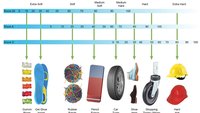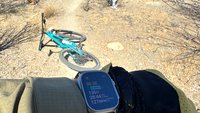I'm curious if we're all invested in carbon frames and tubeless tires, or if there are people other than the two others I can think of that are on the financial independence program. I only wish I'd figured this out when I was 25. I still have to go to work on Monday.
I'm not at all affiliated to moneygeek, couch potato or Money Moustache. Just some basic info presented in a clear manner.
edit - here's a new one I found, based on the US Bogleheads, who are followers of John Bogle, the founder of Vanguard. http://www.finiki.org/wiki/Getting_started

https://www.youtube.com/watch?v=xMkzF3bawvY
Posted by: syncro
I've been slowly re-reading this thread from the start and collecting some of the more valuable (imo) links from this thread for anybody joining late. This is all from the first half, but it's all the info needed to get started on the HM maneuver. You'll have to read the thread from the start or paypal $20 to [email protected] for the answer.
MMM - https://www.mrmoneymustache.com/
Mint - https://mint.intuit.com/
https://www.bogleheads.org/wiki/Main_Page
https://en.wikipedia.org/wiki/Asset_allocation#Return_versus_risk_trade-off
https://canadiancouchpotato.com/getting-started/
heckler
First, know about asset allocation and more importantly, location.
http://canadiancouchpotato.com/2010/03/05/put-your-assets-in-their-place/
Then learn about asset location and tax implications.
http://canadiancouchpotato.com/2012/09/17/foreign-withholding-tax-explained/
Then figure out what currency hedging means. I'm still working on understanding the full implications.
http://canadiancouchpotato.com/2014/01/16/currency-exposure-in-international-equity-etfs/
http://canadiancouchpotato.com/2014/03/06/why-currency-hedging-doesnt-work-in-canada/
Then make a tax efficient allocation and location plan for your accounts. Back to:
http://canadiancouchpotato.com/2012/09/17/foreign-withholding-tax-explained/
Then learn how to buy US listed funds at a low cost. (I haven't done this yet, and am not yet sold on buying VTI over VUN).
http://canadiancouchpotato.com/2013/12/03/norberts-gambit-the-complete-guide/
http://wordvibes.com/2010/09/23/have-to-and-need-to-vs-want-to/
https://www.finiki.org/wiki/Norbert%27s_gambit
https://www.mrmoneymustache.com/2013/02/22/getting-rich-from-zero-to-hero-in-one-blog-post/
Most of this stuff is credited to heckler.
https://srv111.services.gc.ca/generalinformation/index
Posted by: [email protected]
cFIREsim https://cfiresim.com is the ultimate nerd tool for "goobers" who want to play with withdrawal rates/strategies using real (US) data.
There's a nerdy article about that here: https://www.gocurrycracker.com/path-100-equities/
Posted by: [email protected]
This looks like a pretty extensive tool for financial planning that is specifically designed for Canadians:
It's a paid tool but they have a separate simple retirement calculator that you can use for free without registering:
https://www.moneyreadyapp.ca/simple-retirement-calculator/
Free download of David Chilton's The Wealthy Barber Returns.
Last edited by: heckler on Jan. 19, 2024, 12:46 p.m., edited 14 times in total.







